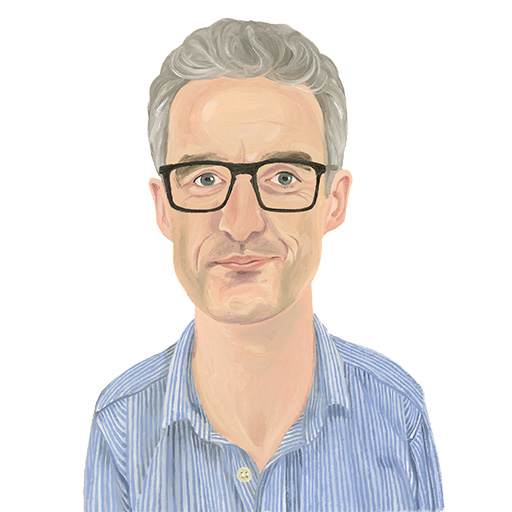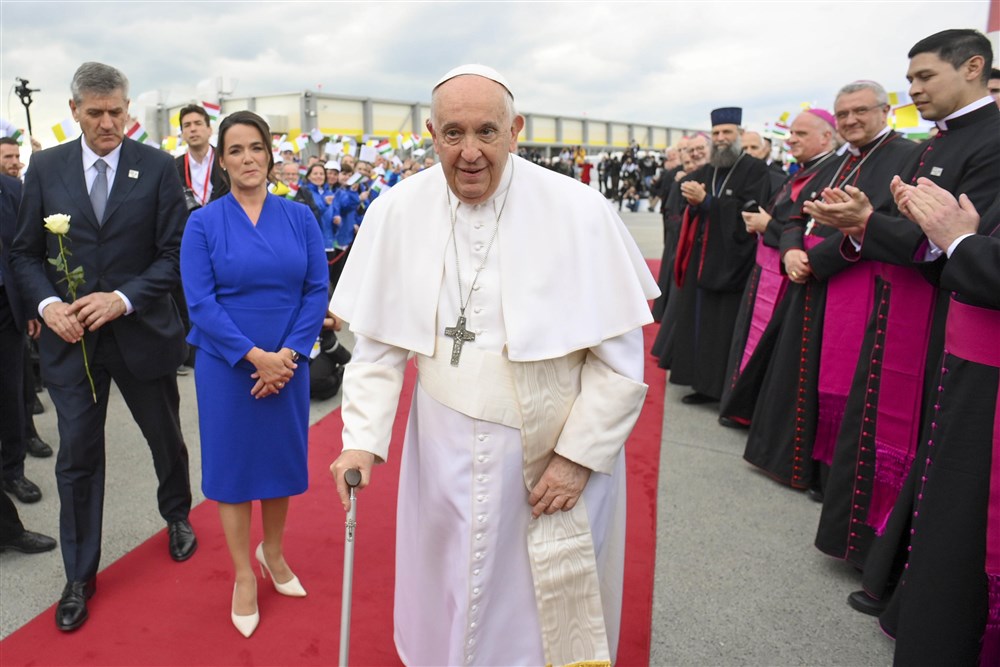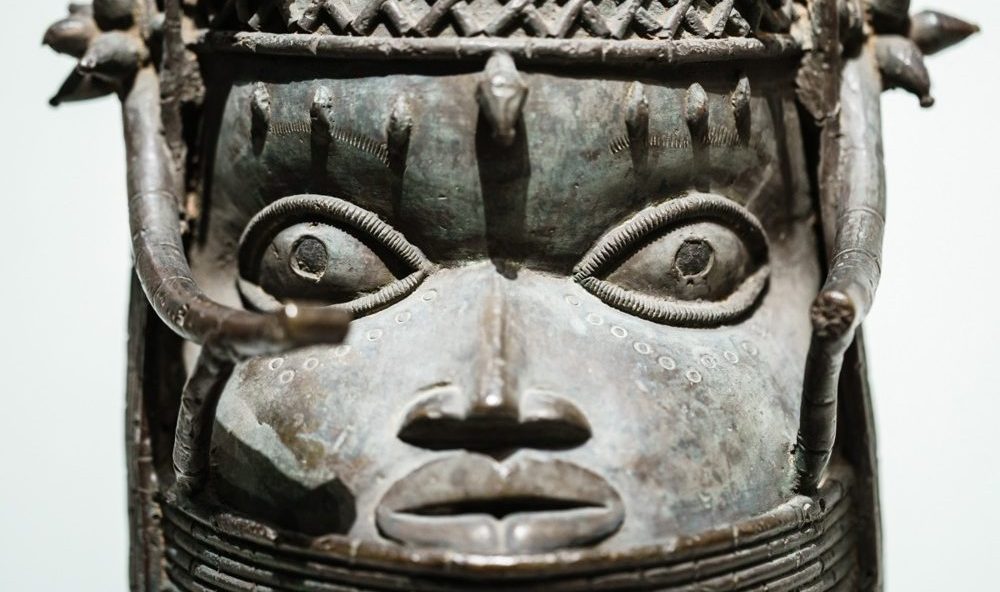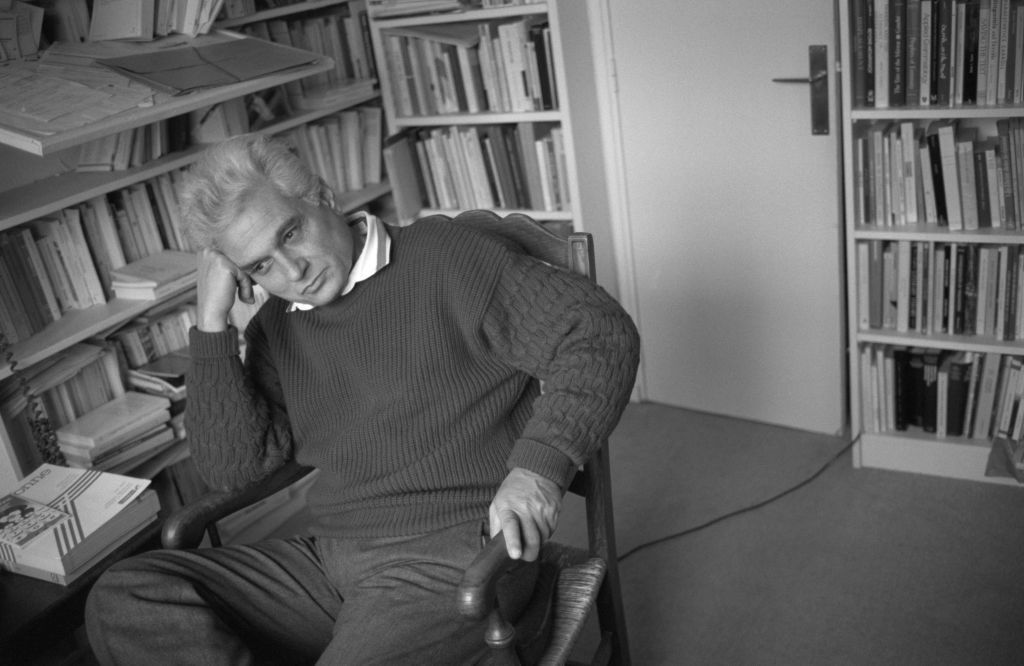Pope Francis’s tenure has proven controversial: many criticise him for being too liberal and undermining traditional Catholic doctrine. Some even suggest he can be a bit “woke”.
But when it comes to Europe, and what ails it and its polity, he doesn’t pull any punches. The Pope appears one of the few public figures willing to speak out against the myriad issues that are undermining both the continent and the EU project itself.
This forthrightness on Europe was a feature during his visit to Portugal for World Youth Day, the Catholic youth festival that ran August 1-6. It was on display even before he arrived, with the plane he was traveling on escorted by a fighter jet to Lisbon’s Figo Maduro Air Base. Talk about so-called Muscular Christianity.
#PopeFrancis walks around the papal plane to greet journalists. Fighter jets escort the aircraft to Lisbon, where #WYD2023 is underway. pic.twitter.com/SRwnPsbSIf
— Justin S. McLellan (@McLellan_Js) August 2, 2023
Admittedly, he said the sorts of uplifting rhetorical generalisations you’d expect from a Pope, urging Europe to recover its “youthful heart” and “an impulse toward universal openness”, Justin McLellan reports for Our Sunday Visitor.
But he also spoke about real, concrete issues, in particular the Ukraine war, highlighting how the world “needs Europe’s role as a bridge and peacemaker” and decrying the lack of “creative ways for bringing an end to the war.”
The lack of a defined “endgame” in Ukraine beyond one option that appears increasingly hard to achieve is an increasing dilemma for the EU with each day that passes, writes @jrfjeffrey.@RStatecraft | @TheGrayzoneNews | @TomasZdechovskyhttps://t.co/Chh6GIWnYV
— Brussels Signal (@brusselssignal) August 2, 2023
He also lamented the “creeping utilitarianism” of the modern Western world that sees the likes of the unborn and the elderly abandoned and deemed not worthy, McLellan notes.
Given the fact he was attending World Youth Day, he addressed the relevant elephant in the room there, noting the countless problems that young people are facing as they enter adulthood: the “lack of jobs, the dizzying pace of contemporary life, hikes in the cost of living, the difficulty of finding housing and, even more disturbing, the fear of forming families and bringing children into the world”.
Admittedly he didn’t link that litany of obstacles with the EU’s obsessive push of a green agenda that is driving up costs — not to mention triggering existential “the-world-is-doomed” despair among younger generations — or its progressive policies that thumb their noses at traditional values, but at least he articulated many of the problems being exacerbated by the EU’s utopian-esque shibboleths.
Since my arrival in Brussels and focusing on EU-matters, I’ve noticed that if you want to know what the Pope has to say about Europe, its problems and the direction it is going, you have to go to niche Catholic media — they actually aren’t that bad, by the way, and do quality journalism — that most people, even Catholics, rarely encounter.
The EU mainstream media’s Pope-related coverage will typically cherry pick comments he makes to suit their editorial agendas, or be used in a way to reflect badly on those member states that don’t toe the line. Like Hungary.
This was starkly illustrated during a visit by the Pope to Hungary in May. In addition to the Pope making a similar point about the lack of “creative energy” around finding a solution to the Ukraine war, he boldly hit out against the “baneful path taken by those forms of ‘ideological colonisation’ that would cancel differences, as in the case of the so-called gender theory, or that would place before the reality of life reductive concepts of freedom, for example by vaunting as progress a senseless ‘right to abortion’, which is always a tragic defeat.”
It was a very un-woke stance — which is rather what you’d hope to hear from a Pope leading the 2,000-year-old Catholic Church, whether you agree with him or not — and went against some of the major pillars of modern progressive liberalism.
The coverage of these comments, as well as of the whole trip, among European mainstream media was revealing.
France 24 was so invested in the trip it cited an Agence France-Presse (AFP) wire article that led with the Pope’s visit being focused on “adolescent belligerence amid rising nationalism and war in Ukraine”. No mention, naturellement, about his comments on gender theory and abortion.
“Pope reiterated his calls for welcoming migrants after a meeting with nationalist Prime Minister Viktor Orban,” was Deutsche Welle’s sehr originell take. Half way down the article, just as you think the article might venture into other topics, it decides to analyse “What is the pope’s schedule?”.
The BBC led with tensions over the “tough anti-migrant stance of Prime Minister Viktor Orban” and the Pope’s comments on the Ukrainian war — safe topics about which metropolitan elites and liberals can nod to in consensus. Further down, the article did mention both the gender theory and abortion comments in a two-sentence paragraph.
Reuters, another wire service that many mainstream European media turn to for coverage, couched their coverage almost entirely through the lens of concerns about “rising nationalism” in Hungary:
Don’t shut door on foreigners, migrants, Pope Francis says in Hungary https://t.co/v6Oy1LOiOg pic.twitter.com/mXEQX3iQA8
— Reuters (@Reuters) April 30, 2023
Politico EU, similarly, led with the visit coinciding with criticism of Hungary’s government “over anti-immigration policies and rhetoric that has stoked xenophobia” — no mention whatsoever, of course, of how strongly the Pope spoke out on gender theory and abortion.
There is a lot of unfair and unhealthy criticism of mainstream media these days. Ultimately, you can never get everything into an article and your coverage.
But, that notwithstanding, many publications don’t help themselves: bias around culture war issues is endemic, and when someone speaks out against it, like Orban, he gets piled on, or when it’s the 86-year-old Pope — for whom a media pile-on is less easy to pull off — the tactic deployed is to simply not cover the comments.
The biased and myopic coverage of the Hungary visit by mainstream media was called out by Eduard Habsburg, Ambassador of Hungary to the Holy See and the Sovereign Order of Malta, who described the “friendship and love” shown by the Pope to Hungary, its people and its politicians during the visit.
Ok, time for a few thoughts about ?? Pope Francis’ visit in ?? Hungary… Surprisingly, it wasn’t exactly what the headlines tell you (imagine my SHOCK) pic.twitter.com/Ax14InbARi
— Eduard Habsburg (@EduardHabsburg) May 1, 2023
“He spoke to us about many of the things the Hungarian government does well”, remarked Habsburg, such as supporting family formation, while acknowledging that the Pope “of course offered a few points where Hungary can improve”.
Aldous Huxley wrote his dystopian classic Brave New World in 1931, a time when capitalism and mass culture were taking off in Europe and becoming more accessible and affordable to the general populace. This included the emergence of mass media, alongside the technology — radio, television — to facilitate its propagation. In 1958 Huxley wrote Brave New World Revisited, an intriguing non-fiction commentary about his famous novel and how much of his dystopian predictions had come true — the answer was an unsettling amount.
“This Power Elite directly employs several millions of the country´s working force in its factories, offices and stores, controls many millions more by lending them the money to buy its products, and, through its ownership of the media of mass communication, influences the thoughts, the feelings and the actions of virtually everybody,” Huxley wrote. “To parody the words of W. Churchill, never have so many been manipulated so much by few.”
“Technology was made for man and not man for technology.”#OnThisDay 1961: Brave New World novelist Aldous Huxley spoke with John Morgan about dystopian and utopian worlds and the increasing influence that technology was having over peoples lives. pic.twitter.com/JbgWlIpzTs
— BBC Archive (@BBCArchive) July 30, 2023
Since then, the technological and scientific developments that were influencing Huxley’s ideas — and concerns — about modern technological progress, mass media and propaganda have developed exponentially and to a degree that possibly even Huxley wouldn’t be able to comprehend.
It’s worth bearing in mind as you endeavour to stay up to speed with events in the EU.






Europe was made on the pilgrim road to Santiago de Compostela: you wouldn’t know it going off the current state of EU politics